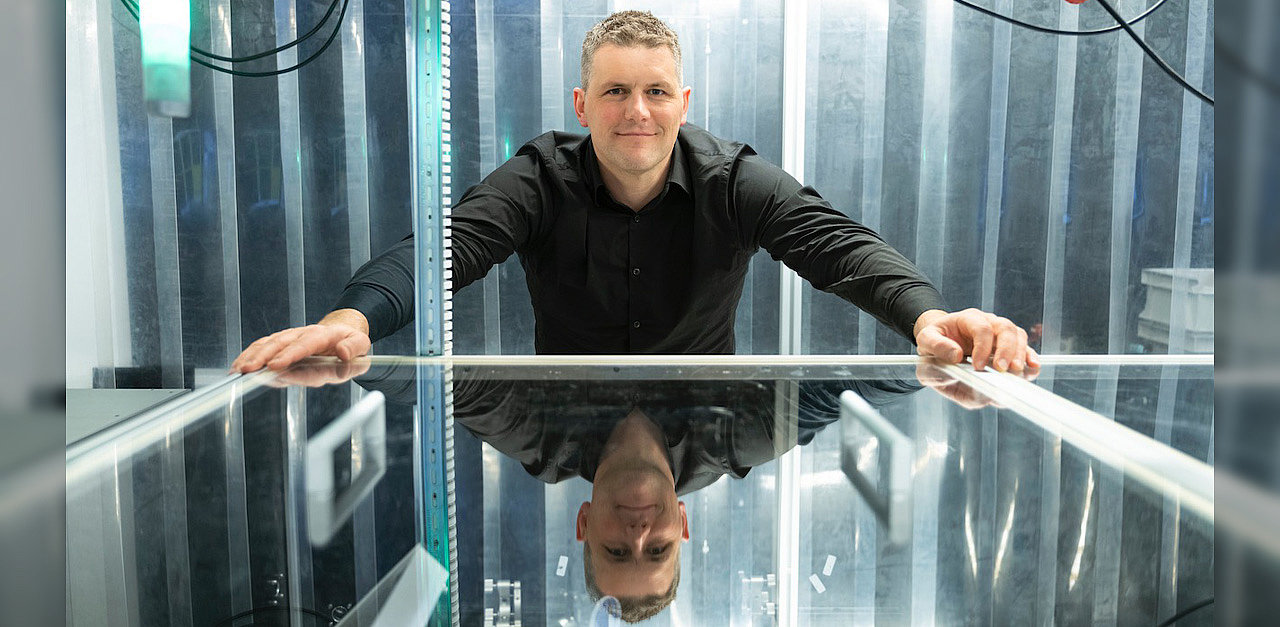The European Research Council (ERC) has awarded a Consolidator Grant to Ioachim Pupeza, funding the project “LIVE - Laser-Based Infrared Vibrational Electric-Field Fingerprinting”. The project will be implemented at the Leibniz Institute for Photonic Technology (Leibniz-IPHT) in Jena, where Ioachim Pupeza heads the new research group “Field-Resolved Optical Precision Metrology”.
A biological system’s phenotype and the evolution thereof are mirrored in molecular composition and its changes, respectively. The complexity of biological samples, however, renders rapid, quantitative, multivariate molecular probing challenging, in particular for non-destructive, label-free approaches. Vibrational spectroscopies capture signals from all molecular bonds exchanging energy with an optical excitation, delivering highly-specific optical fingerprints of samples in their native state, to which virtually all molecules contribute. Yet, while infrared (IR) spectroscopies profit from large vibrational cross-sections, technical limitations of IR radiation sources and detection have so far restricted their applicability in real-world biomedical settings, in particular in the context of highly absorbing water (ubiquitous in biological samples).
The project LIVE aims at harnessing the unparalleled control over light, on the level of individual optical-field oscillations, afforded by femtosecond lasers and nonlinear optics, to overcome current technological limitations and advance IR spectroscopy toward the fundamental limits set by the nature of light and, thus, toward the ultimate sensitivity, specificity and throughput achievable in optical vibrational fingerprinting. To this end, the team envisages the development of powerful sources of few-/single-cycle pulses spectrally covering the entire IR molecular fingerprint region (500–4000 cm-1) with utmost electric-field waveform stability, and of innovative electric-field sampling techniques capturing nearly all photons emitted by linearly and nonlinearly excited molecular vibrations. The new sensitivity and throughput regimes envisaged in the frame of the project will enable new applications of FRS, including high-throughput vibrational fingerprinting of cells of the immune system in flow cytometry and high-resolution, high-sensitivity breath gas monitoring. Thus, LIVE promises direct impact on patients’ health, deeply rooted in basic photonics research.
At Attoworld, Ioachim Pupeza’s team has pioneered the femtosecond-laser-based technologies underlying high-sensitivity infrared FRS for liquid-phase molecular fingerprinting [1]. The implementation of the project LIVE at the Leibniz-IPHT will widen the scope of FRS and particularly profit from the institute’s expertise with transferring cutting-edge photonic technologies to real-world biomedical settings. The envisaged close collaboration between the two research sites will be to their mutual benefit.
Photo: Sven Döring
[1] I. Pupeza, M. Huber, M. Trubetskov, W. Schweinberger, S.A. Hussain, C. Hofer, K. Fritsch, M. Poetzlberger, L. Vamos, E. Fill, T. Amotchkina, K.V. Kepesidis, A. Apolonski, N. Karpowicz, V. Pervak, O. Pronin, F. Fleischmann, A. Azzeer, M. Zigman, F. Krausz
Field-resolved infrared spectroscopy of biological systems, Nature 577, 52 (2020)
